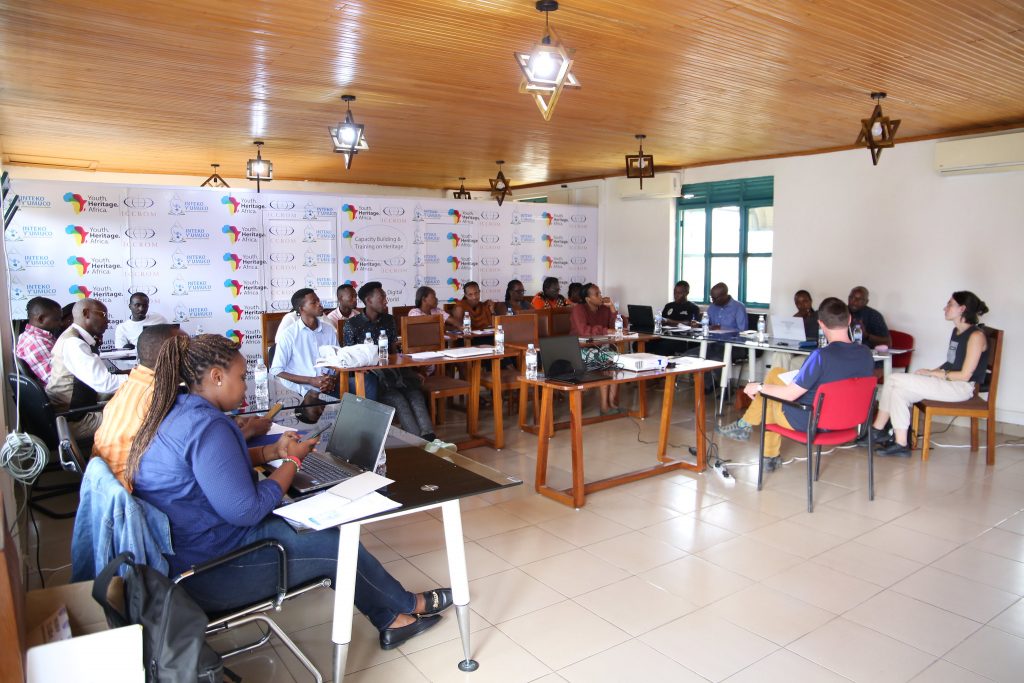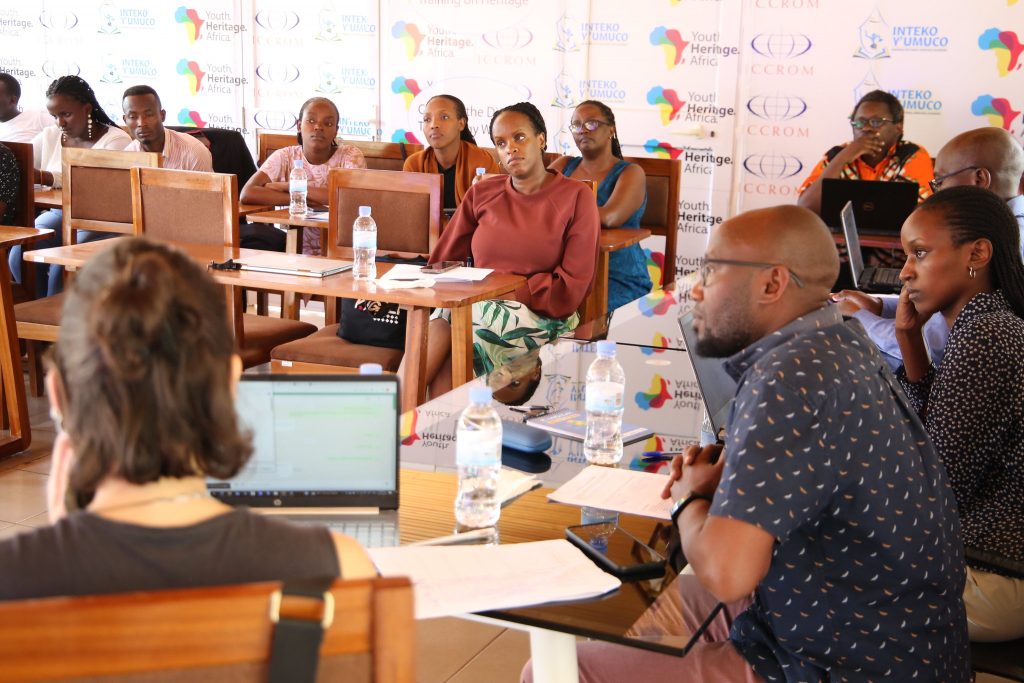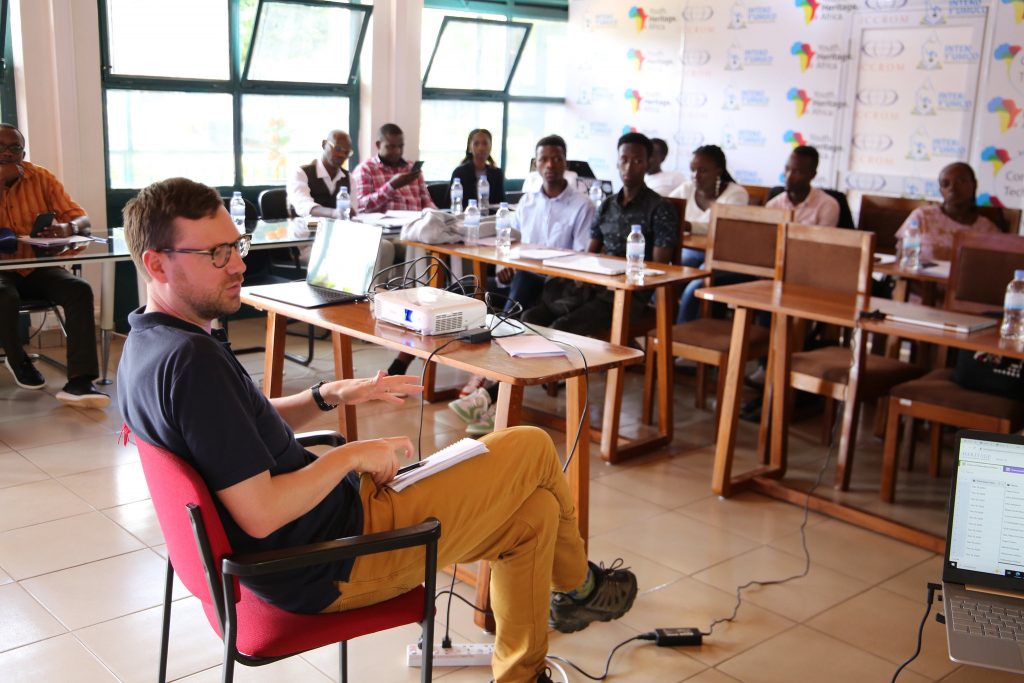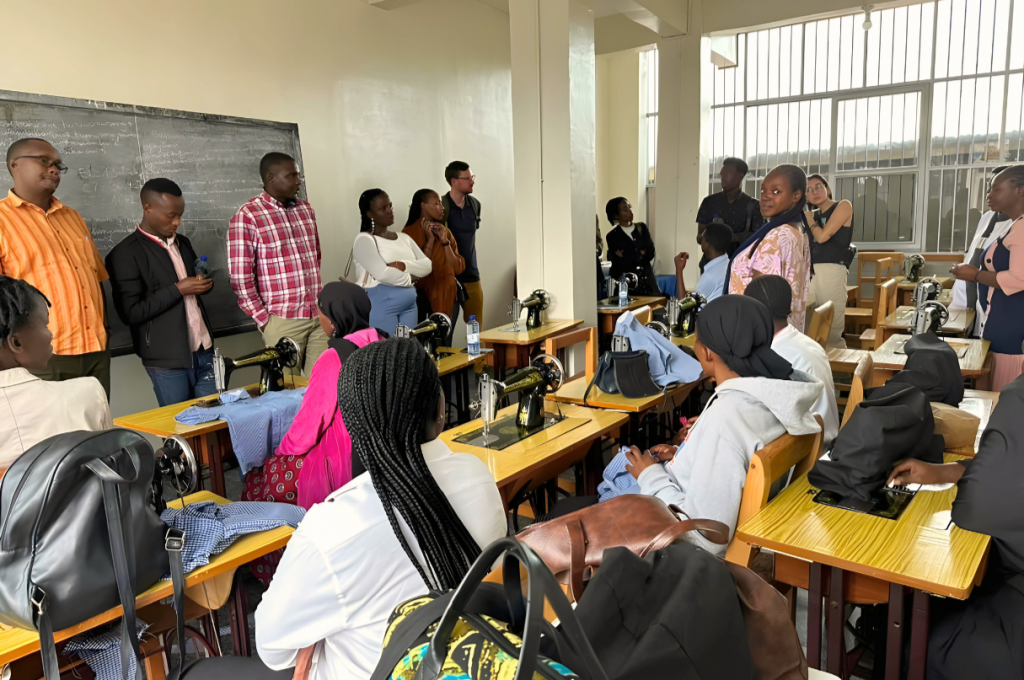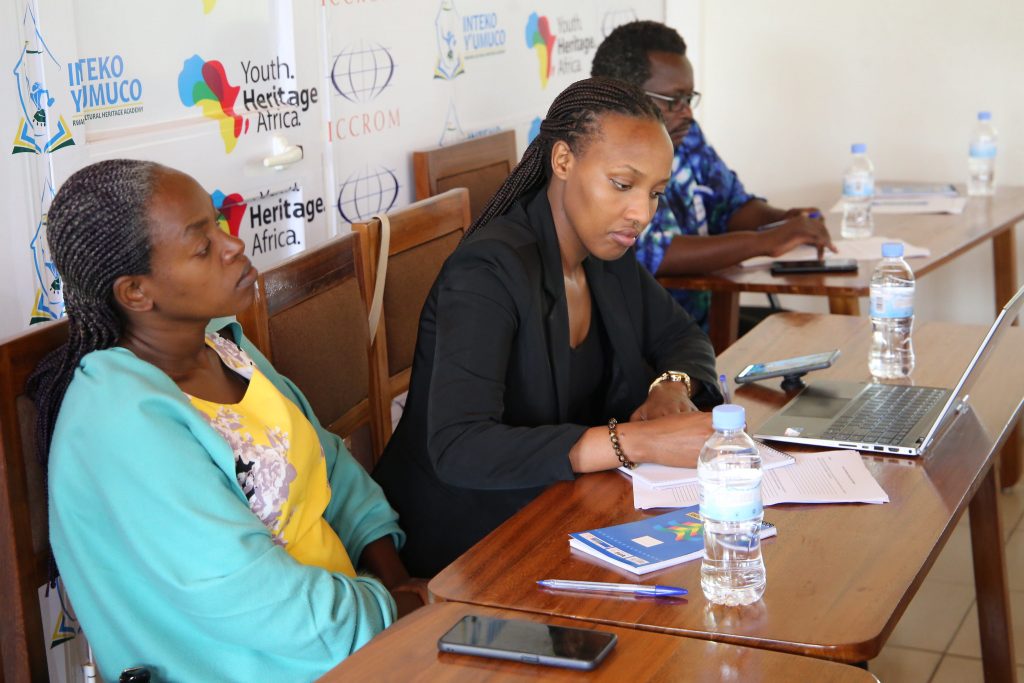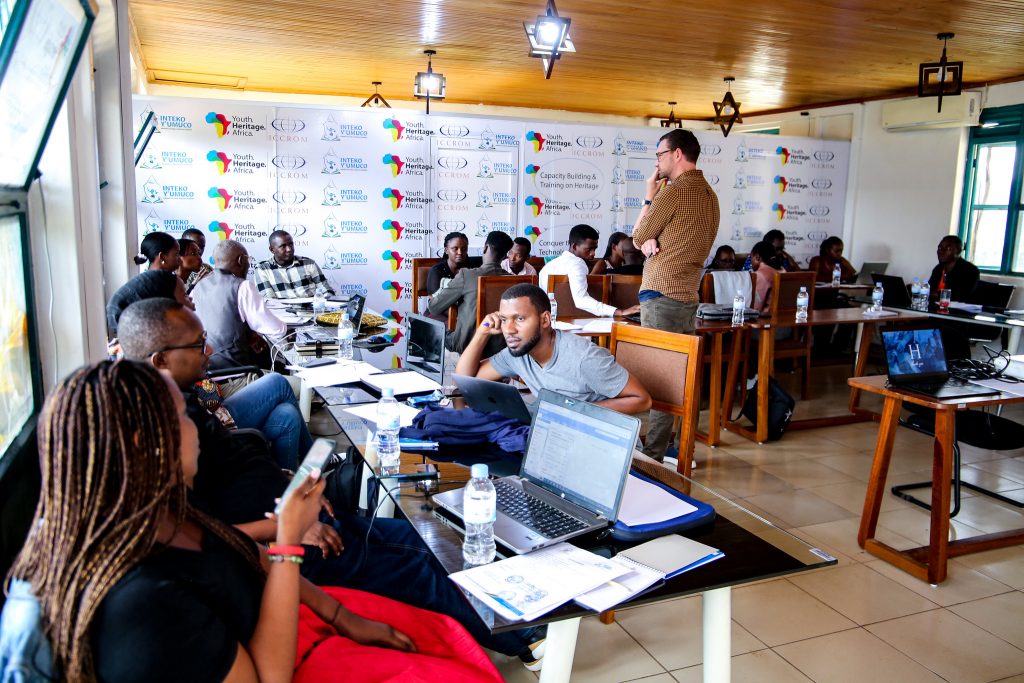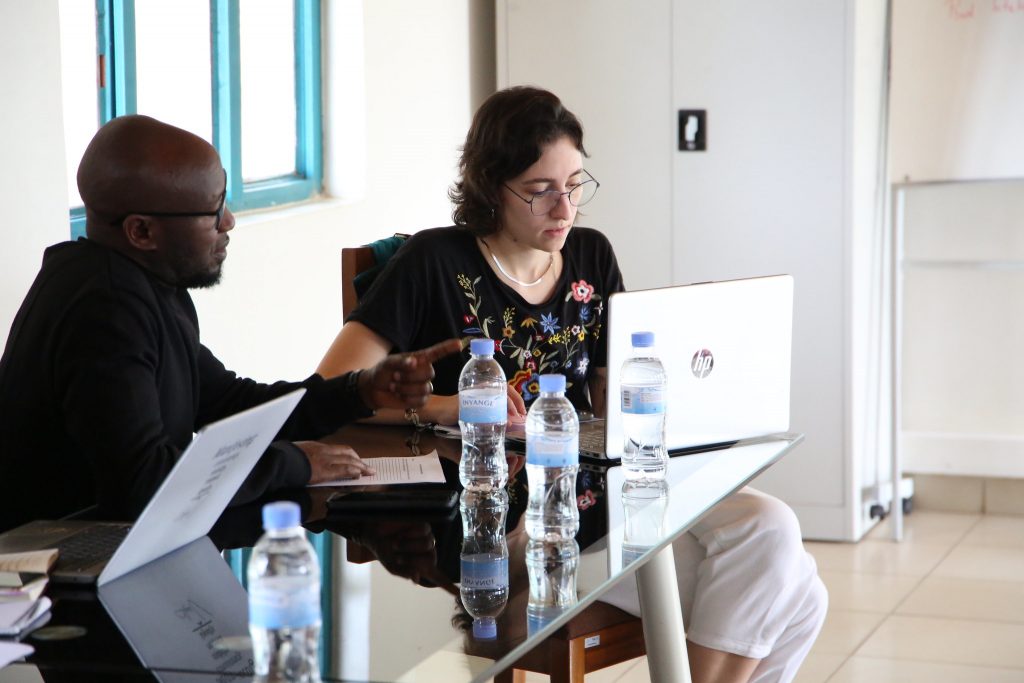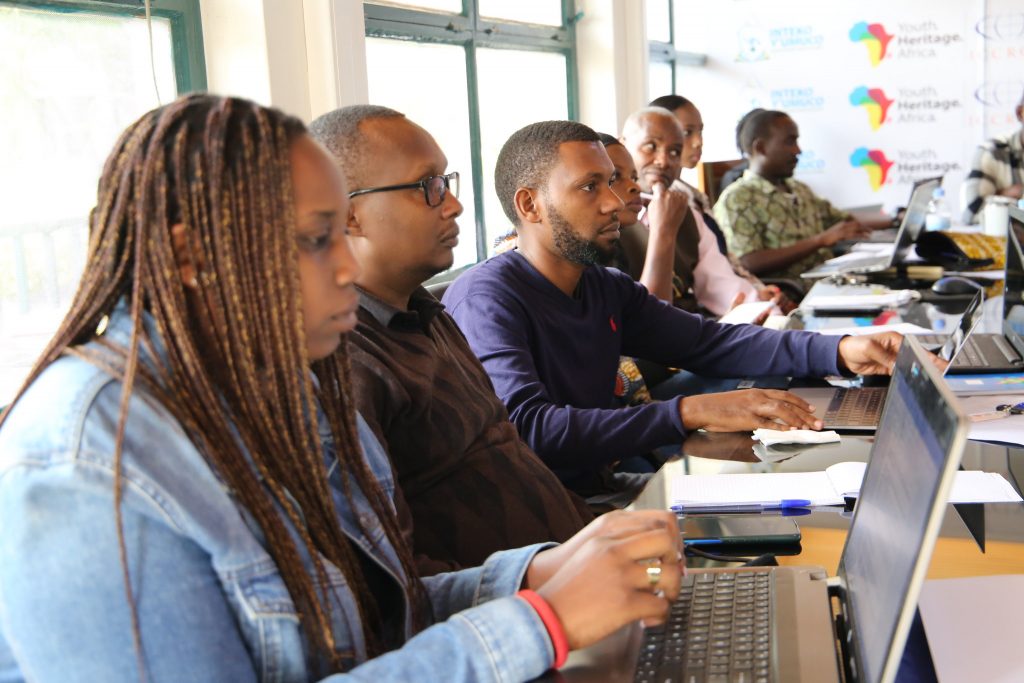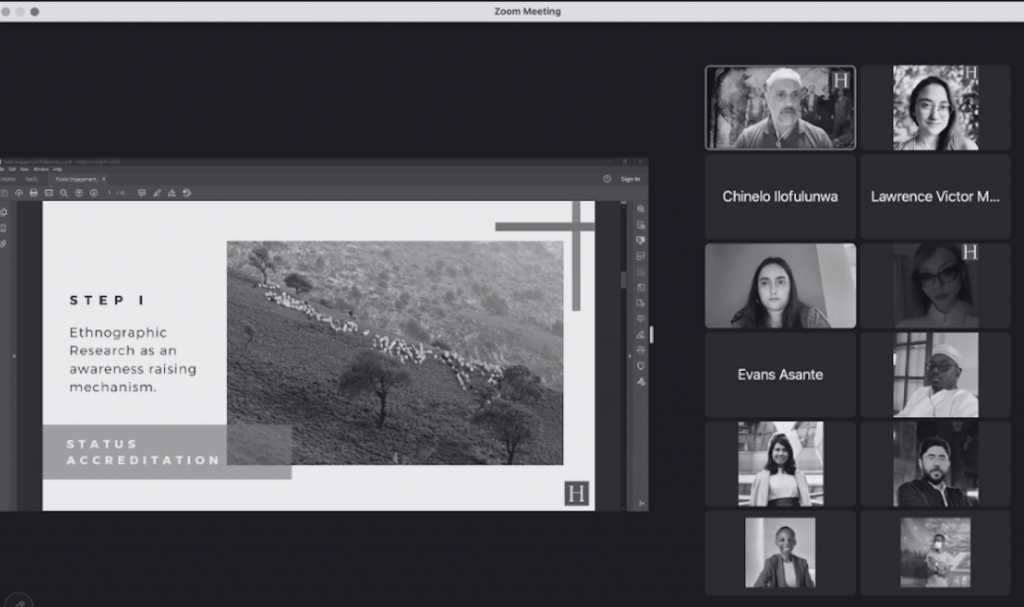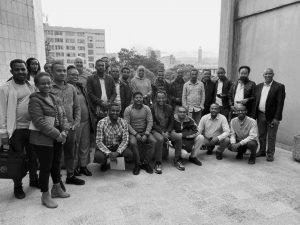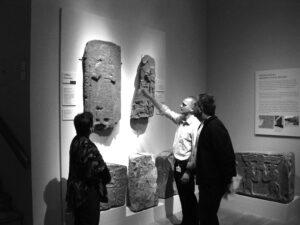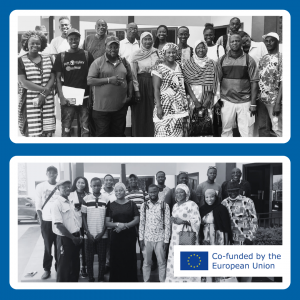: Workshops
Empowering Communities: Innovative Workshops on Community and Economic Development in Rwanda
HERITAGE’s Dr Paul Burtenshaw, an expert in heritage economics, heritage tourism and how cultural heritage supports sustainable and community development, conducted two workshops on Community and Economic Development in Rwanda last month, from the 13 th -15 th and the 16 th -18 th November. The workshops are part of our HerMaP Africa initiative, kindly supported by the Mellon Foundation’s Humanities in Place program. They were produced by HERITΛGE’s Rwanda programs Manager, Eirini Oikonomidi.
The first workshop (13 th – 15 th November) bought together 26 heritage and tourism practitioners in a venue provided by RCHA (Rwanda Cultural Heritage Academy) in Kigali: the Kandt House Museum. Half the participants were from the RCHA and the other half from the RCTA (Rwanda Community Tourism Association). The building itself was an early 20 th century German colonial administrative centre but has since been renovated (2004) and houses a museum of Natural History as well as an exhibition (since 2017) detailing the history of Rwanda before and after German colonisation.
The second workshop (16 th -18 th November) was conducted at Red Rocks cultural centre in Musanze district in the Northern Provenances. It trained 13 members of the RCTA, most of whom aged under 30 years old.
This is the first year HERITΛGE is offering the Community and Economic development workshop in person and online. The workshop has three main objectives:
- To provide the attendees with a firm understanding of the motivations for mobilizing cultural resources for economic benefit. At the same time acknowledging the limits of that mobilisation and how economic impacts are measured and communicated.
- To help attendees develop a plan for economic benefits: focussing on selecting strategies, setting goals and making judgement calls.
- Enabling attendees to implement a complete economic development strategy in their own locations.
On one day of the Kigali workshop, the participants visited the NWC (the Nyamirambo Women Centre) which was a great insight into the work of a local community-focused NGO. The NWC works to promote and empower women through capacity development and employment. At the moment the NWC employs 50 women as seamstresses in a self-sustaining project in which profits are used to fund further initiatives. At the Musanze workshop our hosts, Red Rocks, also engage with promoting the heritage and economies of local communities. It was a valuable experience to see how they worked.
All in all, both workshops were extremely enjoyable, and we look forward to seeing how all 39 participants now come to incorporate their new skills and knowledge into local projects.
Unlocking the Power of Community Engagement: HERITΛGE Workshops Lead the Way
In a rapidly changing world, the role of community engagement has never been more critical for cultural heritage. HERITΛGE’s mission is to empower heritage managers with the skills and knowledge needed to make a difference through community engagement. Our recent three-day workshop equipped 16 heritage professionals from around the world with the tools to engage with their communities, bridge cultural differences, and preserve our shared heritage.
Community engagement is not just a buzzword; it’s the linchpin of heritage preservation. HERITΛGE recognizes that communities are not monolithic entities; they are diverse, dynamic, and rich with unique traditions, perspectives, and values. To truly honor these differences, a cookie-cutter approach won’t suffice. We believe in the power of community-led initiatives and social research to foster engagement that resonates with the specific cultural and social dynamics of each group.
Our recent workshop, held from 27 to 29 October 2023, brought together heritage managers from Africa, North America, Asia, and Europe. These dedicated professionals were not just participants; they were change-makers in the making. Through a combination of lectures, discussions, and hands-on exercises, they delved into the heart of community engagement, exploring methodologies grounded in ethnography and oral history.
Understanding Community Engagement as a Process
One of the key takeaways from the workshop was the profound understanding of community engagement as a dynamic process over time. Participants learned that this approach is not just a strategy but a fundamental aspect of heritage management.
Overcoming Key Challenges
Working with local communities can be challenging, and the workshop equipped our participants with essential knowledge about the primary obstacles they may encounter. With this understanding, they are better prepared to navigate these challenges effectively.
Creating Tailored Engagement Initiatives
The workshop’s focus on understanding the unique traits, requirements, and capacities of different communities was a game-changer. Participants left with the skills to develop engagement initiatives that are specific to each community’s distinct characteristics, needs, and capacities.
Distinguishing Between Communities and Audiences
One of the key lessons learned was the importance of distinguishing between communities and audiences. This insight is invaluable in designing engagement strategies that resonate with each group.
Introduction to Ethnographic Approaches
The workshop introduced participants to ethnographic methodologies, fostering the creation of collaborative research-driven community engagement initiatives. This hands-on experience allowed them to understand the communities they work with on a much deeper level.
Oral History Techniques
Oral history, a powerful tool for eliciting and documenting both tangible and intangible heritage, was another focal point of the workshop. Participants acquired knowledge about the methods and techniques used in oral history, making them proficient in preserving and sharing heritage through storytelling.
A Deeper Appreciation for Heritage
Throughout the workshop, participants gained a profound appreciation for the inherent values associated with heritage. They left with a renewed sense of purpose and a commitment to preserving our cultural and natural treasures.
What’s Next?
The journey doesn’t end with the workshop. A follow-up tutorial session is scheduled for 6 November, offering participants the opportunity to seek guidance, ask questions, and receive expert advice on enhancing their final assignments.
Meet the Instructors
The HERITΛGE workshops were led by a team of expert instructors:
- Dr. Evangelos Kyriakidis, the founding Director of HERITΛGE, brings a wealth of knowledge in Mycenaean administration, Minoan religion, and iconography.
- Dr. Aris Anagnostopoulos, manager of community engagement programs, specializes in the politics and poetics of the material aspects of the past in the present.
- Dr. Eleni Stefanou, manager of programs in Ghana, is an archaeologist and specialist in museum and heritage studies.
At HERITΛGE, as we look to the future, we are excited to see the impact these dedicated professionals will make in their respective regions and the global heritage community.
HERITΛGE also offers an annual summer school in community engagement. Find out more and apply here.
2023-2024 Training Calendar for Heritage Professionals
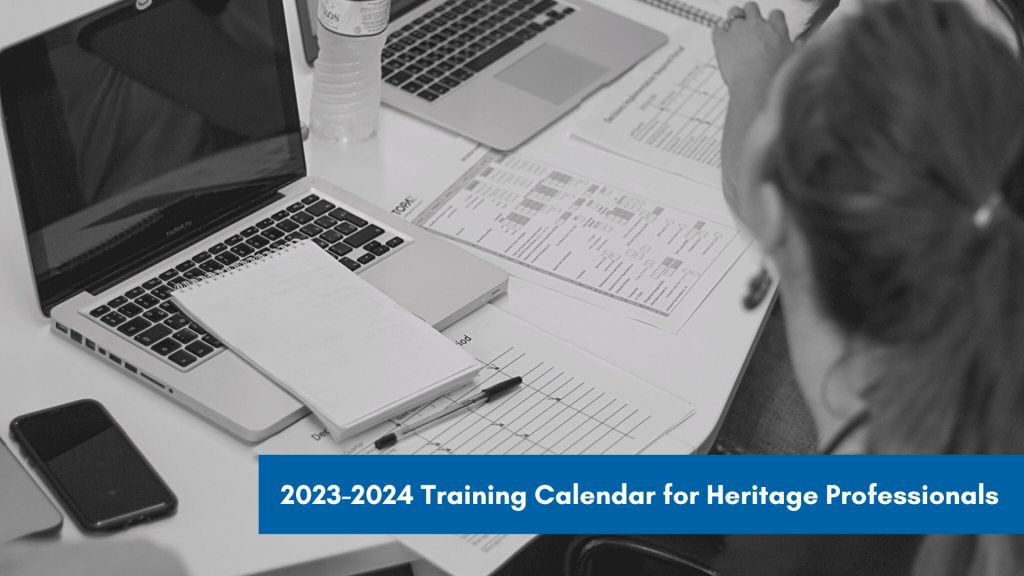 Introduction to Heritage Interpretation for Site Managers | 6 – 8 October 2023
Introduction to Heritage Interpretation for Site Managers | 6 – 8 October 2023
Transform a visit into a captivating experience. Acquire the skills to create meaningful and unforgettable experiences for visitors, during this 3-day online workshop. Only accepting last-minute waiting list applications.
Project Management for Heritage Managers | 7 – 9 October (US only) & 9 – 10 December 2023
This intensive 3-day online workshop led by Tim Healing will show participants the way to run a successful project from inception through planning to implementation and closure. A special US pilot program is still accepting last-minute applications.
Engaging Communities in Cultural Heritage | 27 – 29 October 2023
During this 3-day workshop, we aim to develop a different approach to community engagement based on social (and art) research with community-led initiatives. By adopting a research-led approach, we can foster collaborative design and actions that truly resonate with the unique cultural and social dynamics of each specific group or community, as well as their interactions with others. We will explore methodologies grounded in ethnography and oral history, while also engaging in practical exercises to reinforce learning.
Interpretive Writing for Natural and Cultural Heritage | 10 – 12 November 2023
Written text that grabs and holds the visitor’s and reader’s attention is the key to effective word-based heritage interpretation. During this 3-day online workshop with Steven Richards-Price you will discover and practice a wide range of techniques to engage visitors and master the techniques of interpretive writing.
Climate Change, Community Engagement & Interpretation | 1-3 December 2023
Brand new, 3-day workshop on climate change, heritage interpretation, and community engagement that seeks to empower participants with the tools and skills necessary to engage local communities in climate action through the lens of heritage interpretation.
Temporary Exhibition Design: Agile Exhibitions in a rapidly changing environment | 2-4 February 2024
This up-to-date 3-day workshop focuses on how temporary exhibitions can enhance and promote an institution’s mission, create new audiences and generate revenue, from building an institutional strategy for exhibitions and partnership-building to planning and putting on temporary exhibitions for display at home and on tour. Attendees are encouraged to bring their own ideas and projects to the workshop and time is allocated for 1:1 consultation with the workshop facilitators.
Community and Economic Development | 16-18 February 2024
Cultural heritage managers increasingly have to both demonstrate and create economic benefits for local, regional, and national economies. This workshop will provide attendees with a firm understanding of the motivations for mobilizing cultural resources for economic benefit; the limits of that mobilization; different strategies for creating economic benefits; and how economic impacts are measured and communicated. The workshop will then guide attendees through the development of a plan for the creation of economic benefits for their own case studies, including the development of goals; selecting appropriate strategies; judging economic feasibility; and monitoring and evaluation procedures. As a result of the course attendees will be able to implement economic development strategies in their own community.
Communication Strategy & Strategic Marketing for Cultural Organizations | 8-10 March 2024
You have organized the best exhibition of the year or set up a ground-breaking educational program. You have worked hard with curators, conservators, educators, and everything is ready to rock, but now you wonder… how can I bring people in? How can I reach my audience, and what should I be telling them? This 3-day course is a focused learning experience that provides a systemic approach to successfully attract key audiences’ attention through traditional, new, and social media.
Fundraising for Cultural Heritage Organizations | 22 – 24 March 2024
This 3-day workshop provides a survey of fundraising strategies and skills needed to start-up and build an organization’s contributed revenue with the aim of increasing its impact in the world. Participants learn best practices and apply them to create the case for support and letter of inquiry for their own organization or project.
Conservation II: First Aid for Finds | 12-14 April 2024
The workshop will provide step-by-step instruction on the best practices in the care of freshly excavated archaeological and historic objects as well as in the care of objects belonging to collections that have just been damaged. It will also examine the case of providing first aid measures to architectural heritage. It will go through all the processes that are essential during preparation, application of treatments and monitoring.
Strategic Planning for Heritage Managers| 26 – 28 April 2024
Strategy is a key factor for success in all areas of human activity. This 3-day interactive course aims to provide the tools and methodologies to effectively address the topics of successful strategy formulation and implementation in organizations managing cultural heritage in today’s complex environment.
Conservation I: Introduction to the General Principles of Cultural Heritage Conservation | 24 – 26 May 2024
Following the success of your first Conservation workshop in 2023, we are again accepting applications for this 3-day interactive course that aims to teach the principles and objectives of conservation, and in so doing to introduce its methodology. The workshop will deliver the fundamentals, the ethics, the evolution, and the contemporary international context of conservation.
HERITΛGE provides scholarships to most participants in its training programmes. These scholarships can cover up to 90% of the cost of attendance, depending on the circumstances of the participants and the availability of funding. On average, participants contribute around 300 euros to attend one of our 3-day training workshops.
Empowering Ethiopia’s Heritage Sector: HERITΛGE’s First In-Country Workshop
Preserving cultural heritage goes beyond the institutional practices of protecting ancient structures; it involves engaging communities, understanding shared heritage values , and building a future that respects local perceptions of the past. It is with this in mind that HERITΛGE held its inaugural workshop in Ethiopia in July, training 22 key heritage managers in Community Engagement in Heritage Management.
HERITΛGE Director, Dr. Evangelos Kyriakidis, and Xanthippi Kontogianni, Ethiopia Programs Manager, held the 3-day intensive workshop in Addis Ababa, welcoming heritage professionals representing a diverse range of stakeholders within Ethiopia’s cultural and creative industries. Among the participants were representatives from a diverse range of stakeholders including Jinka University, Madda Walabu University, the Ministry of Tourism, the Ethiopian Heritage Authority, the National Library, and various civil society organizations among them the Waku Gutu Foundation, Heritage Watch, and Save Heritage, History and Culture of Ethiopia.
The workshop is part of HERITΛGE’s program for Ethiopia, supported by the Mellon Foundation’s Humanities in Place program.
Nurturing Capacity for Community Engagement
At the heart of our Communities Engagement workshop lays a commitment to building capacity within heritage management. In an ever-evolving world, local communities are keepers of key information for the understanding of heritage while accountability for protecting their own history and values is indispensable and crucial for sustainable heritage preservation. HERITΛGE has structured the workshop to address these needs comprehensively.
Throughout the workshop discussion facilitated by Dr. Kyriakidis, participants shared examples and case studies from the Ethiopian context and explored the issues affecting the the management of cultural assets in the country, highlighting among others the challenges, needs and opportunities facing heritage managers.
Workshop Outcomes:
- A Network of Collaborators: The workshop serves as a nexus for like-minded professionals to network, share experiences, and collectively envision a future where heritage management is a catalyst for positive change.
- Diverse Perspectives: With participants from universities, government bodies, regional offices, and civil society organizations, the workshop brought together diverse viewpoints, sparking enriching discussions and cross-pollination of ideas.
- Community-Centric Approach: HERITΛGE’s emphasis on community engagement resonated strongly, setting the tone for a future where heritage sites become integral to community development.
- Concrete Strategies:Participants departed the workshop armed with practical strategies to enhance community involvement, integrate local narratives, and develop sustainable heritage management plans.
Project Management for US Heritage Managers
HERITΛGE is launching a pilot training program in Project Management specifically targeted toward U.S.-based Heritage Managers. The 3-day online training program will take place Oct. 7-9 2023, with participants only required to contribute a $50.00 registration fee.
“Project Management is a skill that many take for granted and is often underrated in its importance, but it affects every aspect of our work,” said HERITΛGE Director, Dr. Evangelos Kyriakidis. “This training focuses on those working in the heritage, environmental, or social action fields, but it can equally be applied to any project by emphasizing the importance of planning,” he added.
The course will be delivered by Tim Healing, who has over thirty years of experience working as a project manager and a professional background in project management, community, and NGO development. He specializes in the coordination and support of cultural heritage and community-based social action projects and has particular experience working with local communities, national and regional museums, heritage institutions, government, and non-governmental organizations.
For this pilot program, exclusively targeted towards US-based heritage managers, participants will only need to pay a $50.00 registration fee.
Participants in HERITΛGE’s Executive Leadership in Heritage Management Workshops are automatically granted HERITΛGE Membership.
Find out more: Find out more about our Project Management for Heritage Managers Workshop here.
How to Apply: To apply for this workshop, please fill out this form before September 27, 2023.
Training the Trainers in The Gambia
HERITΛGE is very proud to have trained two groups of heritage practitioners during its Train the Trainers workshop in The Gambia in June, in partnership with the Institute of Travel and Tourism of The Gambia. The 29 practitioners completed the first phase of their training and are now ready to go ahead and train a new generation of heritage managers in The Gambia.
“The Train the Trainers workshop is of great value as it promotes ownership among local people by creating an enabling environment that empowers them to design and deliver courses in heritage management, while at the same time encouraging community participation and ensuring the sustainability and significance of their contributions.,” said Mina Morou, Africa Programs Manager for HERITΛGE.
The Train the Trainers workshop is a transformative program that empowers participants to become influential multipliers in the field of heritage management. It provides participants with the essential skills and knowledge to design and deliver effective courses for adult learners in this domain.
The workshop covers various critical aspects including course design principles, assessing student needs, tailoring instruction, building trust with learners, providing feedback, and implementing continuous evaluation processes. It promotes a culture of critical thinking and highlights the significance of understanding cultural nuances in training delivery. Practical exercises and real-world examples are incorporated to facilitate meaningful learning experiences for the participants.
By the end of the workshop, participants are equipped to disseminate the acquired knowledge and make a positive impact in the field of heritage management.
During the training, HERITΛGE was happy to host the Honorable Omar Jatto Jammeh as a guest speaker. The workshop is part of HERITΛGE’s HerMaP Gambia program.
About HerMaP Gambia: The program is aimed at developing the business skills of heritage and cultural managers to enable them to establish and better support heritage and cultural enterprises. Supporting The Gambia’s heritage sector will promote community solidarity and provide high-quality employment opportunities for local talent.
The program is co-funded by the European Union.![]()


